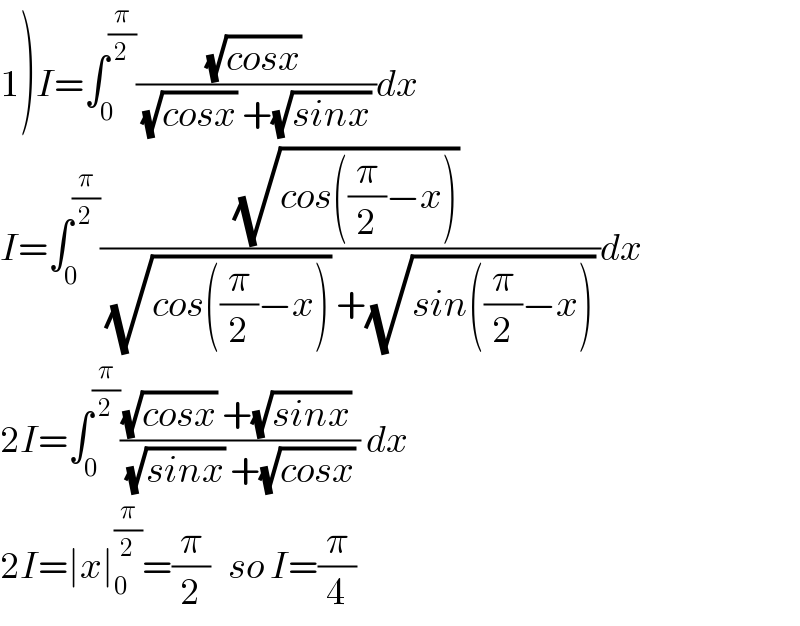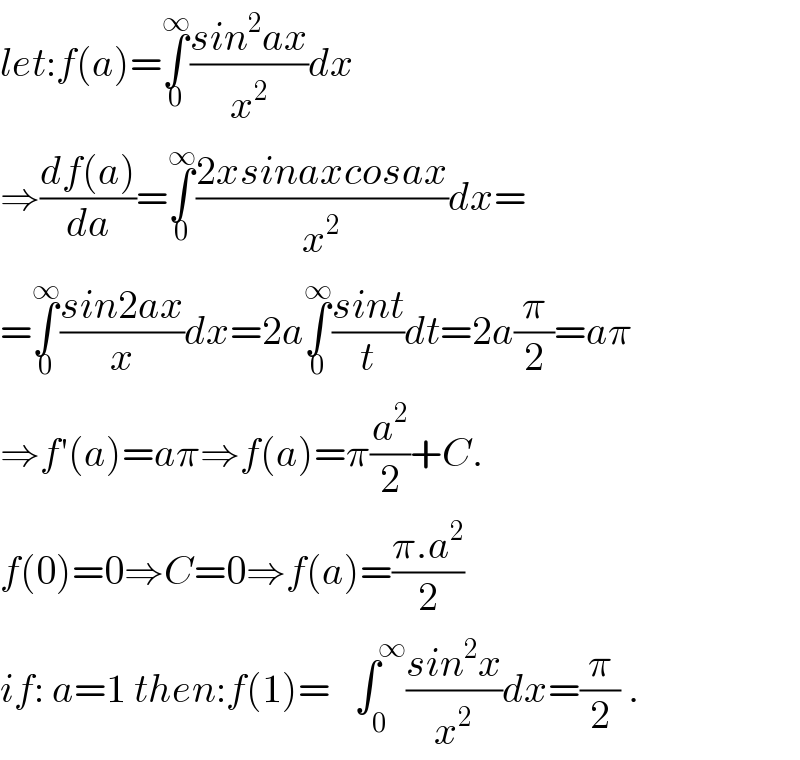
Question and Answers Forum
Question Number 51353 by behi83417@gmail.com last updated on 26/Dec/18

Commented by tanmay.chaudhury50@gmail.com last updated on 27/Dec/18

Answered by tanmay.chaudhury50@gmail.com last updated on 26/Dec/18

Commented by behi83417@gmail.com last updated on 26/Dec/18

Commented by tanmay.chaudhury50@gmail.com last updated on 26/Dec/18

Answered by tanmay.chaudhury50@gmail.com last updated on 26/Dec/18
![4)∫_0 ^1 ((x^a −1)/(lnx))dx I(a)=∫_0 ^1 ((x^a −1)/(lnx))dx ((dI(a))/da)=∫_0 ^1 (∂/∂a)(((x^a −1)/(lnx)))dx =∫_0 ^1 ((x^a lnx)/(lnx))dx =∣(x^(a+1) /(a+1))∣_0 ^1 =(1/(a+1)) ∫dI(a)=∫(da/(a+1)) I(a)=ln(a+1)+c when a=0 I(a)=0 [∫((x^0 −1)/(lnx))dx=0] c=0 I(a)=ln(a+1) hence I=ln2 when a=1](Q51398.png)
Answered by mr W last updated on 26/Dec/18
![(3) ∫((sin^2 x)/x^2 ) dx =−∫sin^2 x d((1/x)) =−((sin^2 x)/x)+∫((2 sin x cos x)/x) dx =−((sin^2 x)/x)+∫((sin 2x)/x) dx =−((sin^2 x)/x)+∫((sin 2x)/(2x)) d(2x) ∫_0 ^∞ ((sin^2 x)/x^2 ) dx =−[((sin^2 x)/x)]_0 ^∞ +∫_0 ^∞ ((sin 2x)/(2x)) d(2x) =0+∫_0 ^∞ ((sin t)/t) dt =(π/2)](Q51393.png)
Commented by behi83417@gmail.com last updated on 26/Dec/18

Answered by tanmay.chaudhury50@gmail.com last updated on 26/Dec/18
![1)∫_0 ^(π/2) (dx/(1+(tanx)^a )) [[ a=(√2) ] ∫_0 ^(π/2) (dx/(1+(((sinx)^a )/((cosx)^a )))) I=∫_0 ^(π/2) (((cosx)^a )/((sinx)^a +(cosx)^a ))dx now using ∫_0 ^(π/2) f(x)dx =∫_0 ^(π/2) f((π/2)−x)dx 2I=∫_0 ^(π/2) dx I=(π/4)](Q51406.png)
